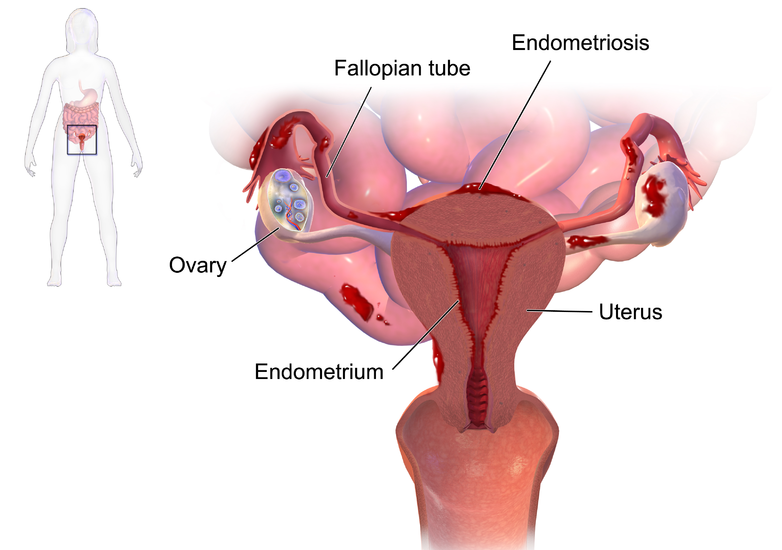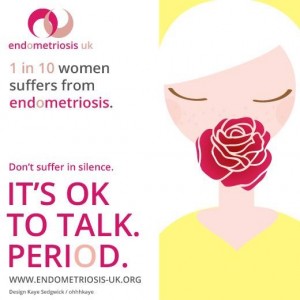Endometriosis is a condition that often goes unrecognised and unreported, because it is generally written off as ‘period pain’.
However, it can be both debilitating and disabling to the sufferer. In recognition of Endometriosis week, we are going to take a look at the condition, its symptoms and the treatment and support available.
Endometriosis Week is organised by the Endometriosis UK charity. It will run from Tuesday 3rd – Monday 9th March. The charity aim to raise awareness about this hidden and often unrecognised condition.
The charity aims for Endometriosis Week include:
- Promoting – a greater awareness & understanding of Endometriosis as a real, debilitating and disabling disease
- Highlighting – the consequences of living with Endometriosis for the sufferer, carer and all those affected by the disease
- Creating – a greater awareness and understanding of Endometriosis amongst the medical profession, education sector, employers, politicians and society in general
- Seeking – a best practice and consistent care and treatment for everyone wherever they may live
- Providing – an opportunity for those whose lives have been affected by Endometriosis to play an active part in helping to make a difference
Endometriosis is a common condition that affects over 2.5 million women in the UK. It occurs when tissue – similar to that which lines the womb – is found in other areas of the body, such as around the fallopian tubes. When the womb lining is shed during a period, this external tissue is not shed – as there is nowhere for it to go. Instead it remains within the body as a foreign object; it can begin to swell and bleed, forming lesions and cysts.

Although sometimes symptom-less, the common signs of Endometriosis are:
Painful or heavy periods, pain in the lower back, pelvis or abdomen, pain during or after sex, bleeding between periods, long-term exhaustion and fatigue, depression, pain whilst going to the loo and/or difficulty getting pregnant. Many women believe that this is normal period behaviour, however it is not. Endometriosis UK advises that ‘no-one should be experiencing pain that lasts for more than 2-3 days, that affects your everyday activities or that cannot be controlled by normal over-the-counter pain medication’.

Their ‘It’s okay to talk. Period’ campaign aims to encourage women and young adults to break the taboo and talk openly about their periods.
Mild symptoms of Endometriosis can usually be managed with strong painkillers or hormone medication. Cases of more moderate pain can be controlled through surgery and drug therapy. The treatment of very severe cases can involve a hysterectomy. There is no known cure for Endometriosis. Each patient is reviewed on a case-by-case basis before a pain-management strategy can be developed. Support can be found at Endometriosis UK hold fundraising events around the country, raising money to improve research into the condition and maintain their support networks for sufferers.
For more information about the condition, or to get involved in fundraising, please visit Endometriosis UK.






